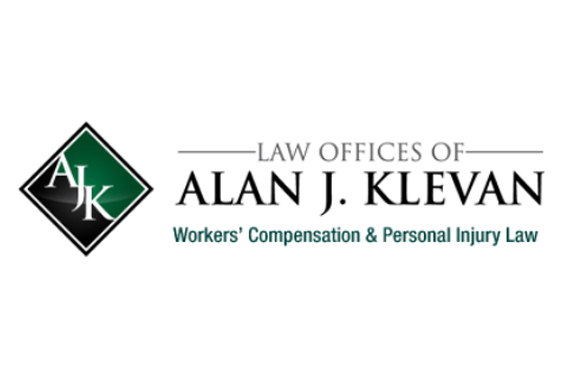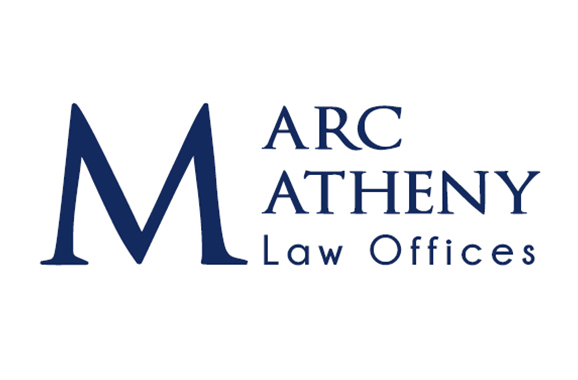High Google Rankings for Attorneys
High Law Firm Google Rankings
Outperform Your Competitors In The Google Search Results
In approximately 68% of Internet searches, users don’t go past the first page of the search results, and in about 92% of searches they don’t go past the first three pages.
If your firm doesn’t have a first page presence, chances are high that your firm won’t be seen (or considered) by prospective clients. Conversely, firms with a strong first page presence (through the organic rankings and pay-per-click marketing) receive a disproportionately high number of clients.
Our SEO program for lawyers consists of the following elements:
- Search Term Identification: We identify the key search terms prospective clients are likely to use when searching for your legal services
- Competitive Analysis Report: We identify and analyze the top 10 “Competing Websites” on Google for the key search terms and prepare a comprehensive report based on our findings.
- Website Architecture Report: Once we have an understanding of what changes need to be made to your law firm’s website to achieve high Google rankings, we prepare our website architecture recommendations.
- Link-Building Strategy Plan: Because Google rankings are influenced by the number and quality of links from other websites that link to your firm’s website, we create a detailed link-building plan.

Like most “ethical” SEO companies, we do not guarantee first-place search engine rankings. Contact us today to see how we can create an SEO plan that is right for your firm.
Want to Know More About SEO for Law Firms & Attorneys?
Click one of the links below for more information about SEO:
Law Firm Google Rankings & SEO FAQs
Google rankings are critically important for lawyers due to the highly competitive nature of the legal industry and the growing reliance of potential clients on online search for legal services.
- Visibility: Higher rankings in Google search results mean more visibility. Most users don’t scroll past the first page of search results. If your law firm ranks on the first page, it significantly increases the chances of a potential client clicking on your website.
- Credibility: High Google rankings can also enhance your law firm’s perceived credibility and authority. Users often interpret high rankings as a sign of relevance and trustworthiness.
- Traffic and Leads: Improved rankings increase organic traffic, which can translate into more leads and potential clients for your law firm.
- Local Search: Google gives importance to local search results, showing users the businesses closest to them. Good Google rankings can help your law firm stand out in local searches, attracting clients in your area.
- Competitive Edge: With many law firms competing for visibility, those who invest in SEO and achieve high Google rankings have a significant competitive advantage.
For these reasons, focusing on improving Google rankings should be an integral part of any law firm’s digital marketing strategy.
Improving your law firm’s Google rankings requires a comprehensive and ongoing SEO strategy. Key aspects include:
- Keyword Optimization: Understand what search terms potential clients use and incorporate those keywords appropriately throughout your website.
- Quality Content: Create valuable, informative, and unique content regularly. This can help establish your law firm as an authoritative source of legal information, attracting more visitors and links to your site.
- On-Page SEO: Ensure each page’s title, meta description, and headers are optimized for relevant keywords. Use SEO-friendly URLs and add alt text to images.
- Technical SEO: Make sure your website is mobile-friendly, secure (HTTPS), and loads quickly. Clear navigation and a well-structured sitemap help search engines understand and index your site more effectively.
- Backlinks: High-quality inbound links from reputable websites help boost your site’s credibility in the eyes of search engines. Build a solid backlink profile through guest blogging, partnerships, and providing valuable resources that others want to link to.
- Local SEO: Optimize your Google My Business listing, and ensure your firm’s name, address, and phone number (NAP) are consistent across all online directories. Collect positive reviews and incorporate local keywords to increase your visibility in local search results.
- Track and Analyze: Use tools like Google Analytics and Google Search Console to monitor your website’s performance, analyze traffic, and understand what works and what needs to be improved.
- Stay Updated: SEO isn’t static. Stay up-to-date with the latest changes in Google’s algorithm and SEO best practices to maintain and improve your rankings.
Establishing lawyer, attorney, and law firm Google rankings involves multiple factors:
- Relevance and Keywords: Your website content should align with user search queries to show its relevance.
- Content Quality: Original, informative content that offers value to users is vital for enhancing attorney rankings.
- Backlinks: High-quality backlinks from reputable websites influence law firm Google rankings positively.
- User Experience (UX): A mobile-friendly, fast, secure, and easy-to-navigate site improves rankings.
- Local SEO: For location-based searches, Google considers your firm’s local presence and proximity.
- Domain Authority: Factors like site age, quality content, and a strong backlink profile contribute to domain authority, impacting lawyer Google rankings.
- Engagement Metrics: User behaviors on your site, such as click-through rate and time spent, affect rankings.
- Social Signals and Structured Data: Indirect factors like social media engagement and the use of structured data can influence attorney and law firm Google rankings.
Finding the right keywords for improving your law firm’s Google rankings involves several steps:
- Identify Practice Areas: Enumerate all your services to generate potential keywords.
- Think as a Client: Anticipate the search terms potential clients would use to find your services.
- Use Keyword Tools: Leverage tools like Google Keyword Planner to research keyword search volumes and competition.
- Study Competitors: Analyze keywords your competitors rank for using SEO tools.
- Opt for Long-Tail Keywords: Long, specific phrases can attract targeted traffic and often lead to higher conversion rates.
- Localize Keywords: Include city or region-specific keywords to capture local searches.
- Continual Analysis: Regularly review your keyword performance and adjust your strategy to ensure optimal results.
Keyword search volume refers to the number of searches that a specific keyword receives within a given timeframe, usually expressed as monthly average searches. It’s a valuable metric in SEO as it helps identify how much demand or interest exists for a particular keyword.
On-page SEO significantly influences Google rankings for attorneys by optimizing various elements on a webpage:
- Keyword Optimization: Incorporating keywords in titles, headers, and content enhances page relevance and rankings.
- Meta Descriptions and Title Tags: Well-crafted descriptions and titles with keywords improve click-through rates.
- Content Quality: Unique, regularly updated content boosts user engagement and signals Google about the page’s value, impacting attorney rankings.
- Image Optimization: Relevant file names and alt text for images can improve rankings in image searches and enhance user experience.
- URL Structure: Clear, keyword-inclusive URLs aid in user navigation and help search engines understand page content, positively influencing law firm Google rankings.
An informational keyword is a type of keyword used by people who are looking for more information on a specific topic, product, or service. These are typically used in the earlier stages of the buyer’s journey when users are conducting research or seeking to understand a particular issue.
For instance, if a user types “What is estate planning?” or “How to file for divorce?” into a search engine, these are considered informational keywords. They are looking for more information on these topics rather than intending to make a purchase or hire a service immediately.
Intent-to-hire keywords, sometimes referred to as transactional or commercial keywords, are search terms used by people who are ready to make a decision or take action, like purchasing a product or hiring a service. These keywords imply a strong intent to engage in a commercial activity.
For law firms, examples of intent-to-hire keywords could be “best DUI lawyer in New York” or “hire divorce attorney in Miami.” People using these search terms are likely at the decision stage of their buyer’s journey, having already done their research and now looking to hire a lawyer.
Absolutely, blogging plays a crucial role in improving law firm Google rankings for several reasons:
- Fresh Content: Search engines like Google favor websites that are regularly updated with new content. Regular blogging provides fresh content, signaling to search engines that your site is active and current.
- Keyword Optimization: Blogs allow you to incorporate relevant keywords in a natural and contextual way, improving your chances of ranking for those terms.
- Authority and Trust: High-quality, informative blog posts establish your law firm as an authority in your field, building trust with readers and search engines alike.
- User Engagement: Engaging blog content keeps visitors on your site longer, which can positively influence your rankings.
- Backlinks: Excellent blog content can earn you backlinks from other reputable websites, a key factor in Google’s ranking algorithm.
- Long-Tail Keywords: Blogs are an excellent way to target long-tail keywords, which can attract more targeted traffic.
Word count itself is not a direct ranking factor in Google’s algorithm. However, longer content often allows for more in-depth coverage of a topic, which can improve the overall quality of the content. Quality, in turn, is a significant factor in Google’s ranking algorithm.
Yes, using images and videos for on-site SEO can indeed help improve law firm Google rankings. Here’s how:
- User Engagement: Images and videos can make content more engaging, increasing the time users spend on your site, which is a positive signal to Google.
- Improved Understanding: Visual content can help convey complex legal concepts in an easily digestible way, enhancing the user experience.
- Additional Ranking Opportunities: Images and videos can appear in Google’s image and video search results, providing additional visibility.
- Image and Video SEO: When properly optimized with relevant file names, alt text (for images), and descriptions, visual content can contribute to your site’s overall SEO.
- Shares and Backlinks: High-quality visual content is more likely to be shared, potentially increasing your backlink profile.
To get the maximum benefit, all visual content should be optimized properly, including using relevant keywords in the file names, alt text, and descriptions.
Ready to
Get
Started?






